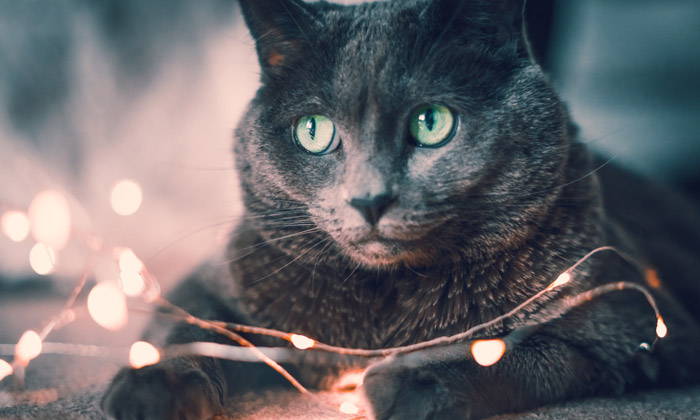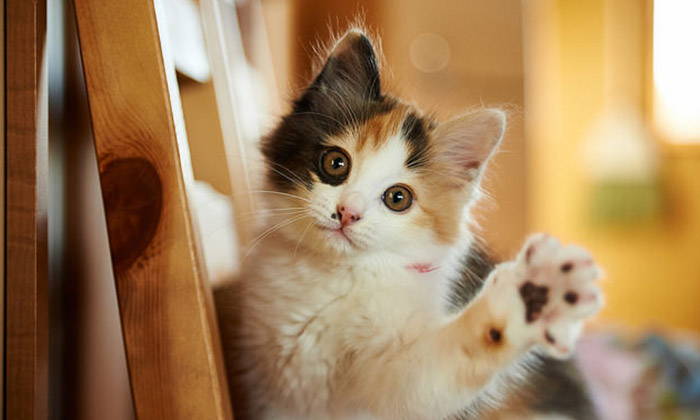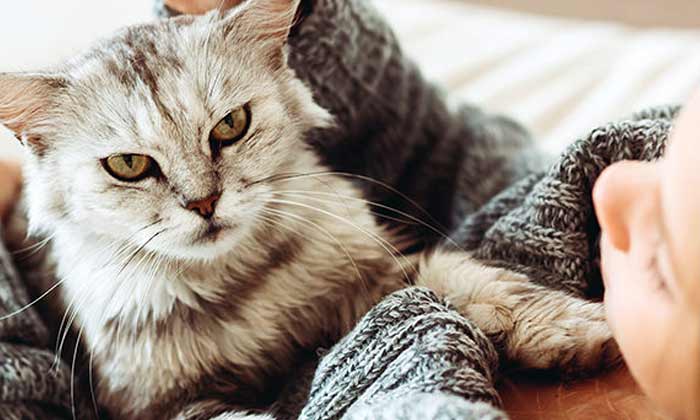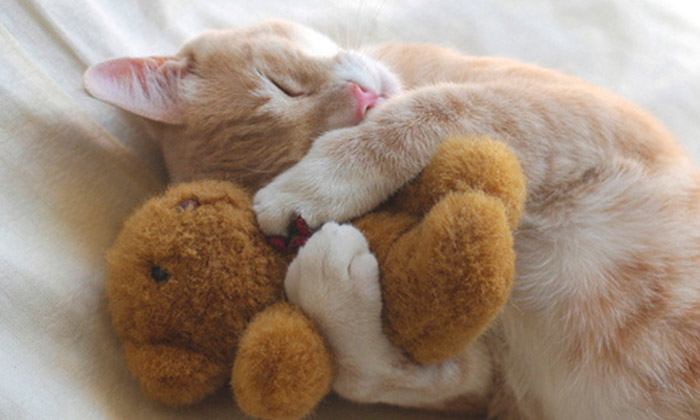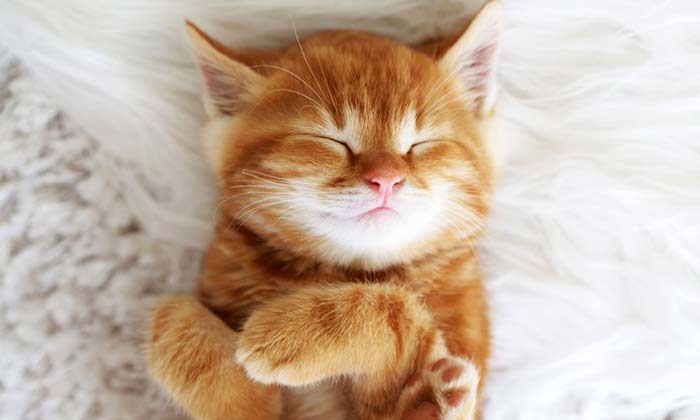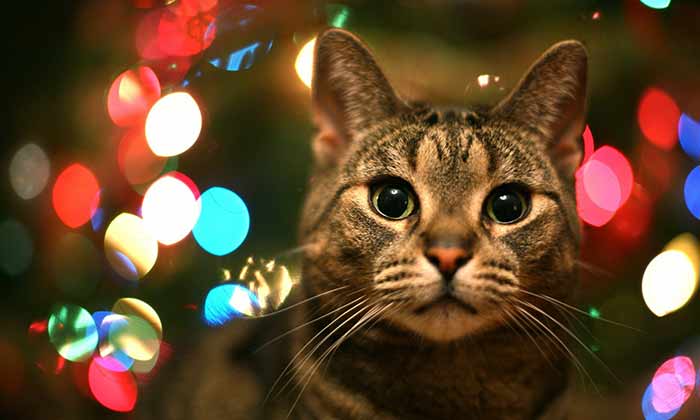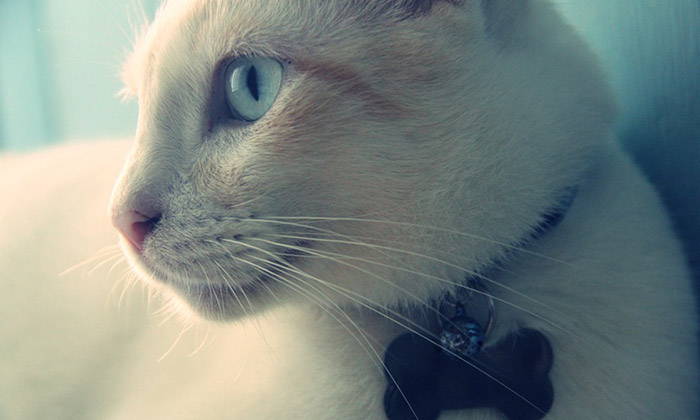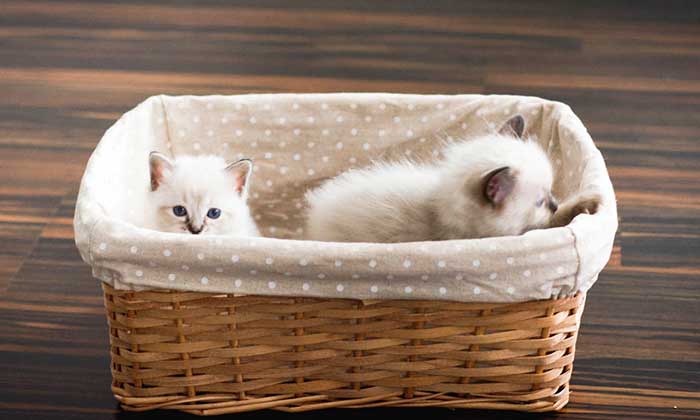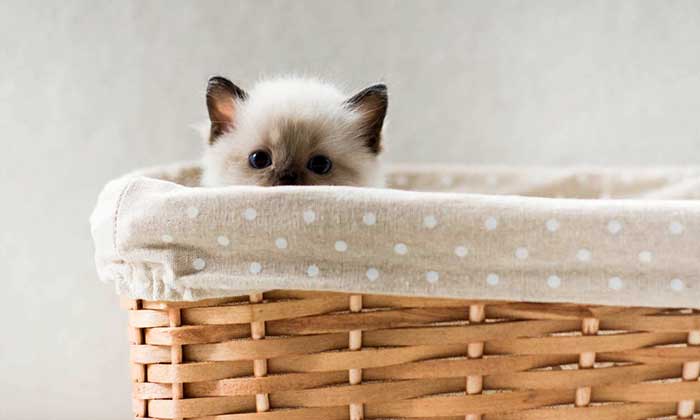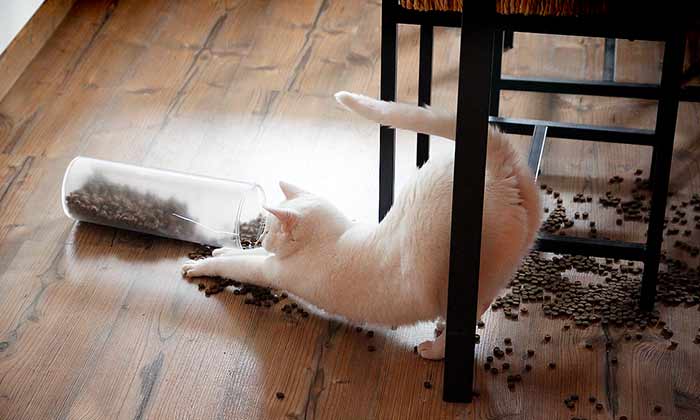How to Cope With the Loss of a Cat
Because of the special bond we share with our cats, it’s normal to feel overwhelmed by emotions of mourning and depression when we try to cope with the loss of a cat. While some may fail to appreciate the level of connection you had for your cat, you should not feel wrong or embarrassed about mourning for your cat. Rather, use the following recommended tools to manage your bereavement, ease yourself and others, and start the procedure of moving forward.
Understanding Grief And Mourning After the Loss of a Cat
 For many people a cat is much more than merely a cat. Cats are esteemed members of the family and, when they pass, you feel a substantial, even painful emptiness. The depth of mourning is affected by your chronological age and persona, the maturity of your cat, and the conditions around the cat’s passing. Typically, the more substantial the loss, the more strongly the sadness you’ll experience.
For many people a cat is much more than merely a cat. Cats are esteemed members of the family and, when they pass, you feel a substantial, even painful emptiness. The depth of mourning is affected by your chronological age and persona, the maturity of your cat, and the conditions around the cat’s passing. Typically, the more substantial the loss, the more strongly the sadness you’ll experience.
Mourning can be aggravated by the role your cat had in your life. If you attended to your cat through a lengthy sickness, you probably came to love him greater. If you lived by yourself and your cat was your one and only, dealing with his passing can be even more difficult. If you could not provide costly veterinary services to extend the lifespan of your cat, you may experience feelings of responsibility.
We All Mourn Differently
Mourning is a private and extremely personal experience. Some find mourning comes in phases, defined by feelings of denial, anger, guilt, depression, and eventually acceptance and resolution. Others find mourning is more unpredictable, coming in flashes, or a succession of ups and downs. The low-points are often more profound and extended in the beginning and slowly become shorter and decrease in strength. Nonetheless, even years following cat death, a glimpse, a noise, or a special date on the calendar may spur memories which generate intense feelings of sadness.
The mourning process occurs slowly. It cannot be coerced or pried—and there is no standard schedule for mourning. Some begin to recover before the weather changes. For others, the mourning process takes years to unfold. Whatever your mourning experience, it’s critical to be gentle with yourself and permit the process to occur organically.
Feeling down, scared, or alone is a standard response to the death of a cat. Having these emotions doesn’t mean you are feeble, so you should not be embarrassed.
Attempting to deny your sorrow or suppress it will only aggravate it. For genuine healing, it is important to confront your feelings and proactively work at recovery. By acknowledging your feelings, you’ll likely require less time to recover than had you withheld or denied your feelings. Journal about your emotions , speak with other people about them and read more about How to cope with the loss of a cat.
Coping With Mourning After the Loss of a Cat
Sadness and mourning are standard and expected reactions to loss. Like mourning for people, mourning for a dead cat can only be processed over time, but there are healthy means of managing the hurt. Try these very helpful suggestions:
 Don’t allow others to dictate how you should respond, and don’t discredit your own feelings either. Your feelings are yours alone, and nobody can tell you when it’s time to move forward. Allow yourself to feel the breadth of your emotions minus defamation or opinion. It’s alright to be mad, to shed tears or not to shed tears. It’s alright to giggle, to experience instance of happiness, and to move forward in your own time.
Don’t allow others to dictate how you should respond, and don’t discredit your own feelings either. Your feelings are yours alone, and nobody can tell you when it’s time to move forward. Allow yourself to feel the breadth of your emotions minus defamation or opinion. It’s alright to be mad, to shed tears or not to shed tears. It’s alright to giggle, to experience instance of happiness, and to move forward in your own time.
Talk to other people who have lost cats. Join online chatrooms, call cat loss numbers, and dead cat support groups—see Resources offered below for more information. If your friends, family, counselor, or clergyman do not support you through the loss of your cat, find somebody who will – somebody who has similarly experienced losing a cat may better appreciate what your experience. I highly recommend the Pet Loss Grief Recovery guide by Robin Jean Brown – it helped me a lot.
Find professional assistance if necessary. If your mourning is constant and you cannot do your regular daily tasks, your doctor or mental health clinician can assess you for depression.
Keeping your routine may aid your recovery. A funeral ceremony allows you and your family members to freely state your emotions. Disregard those who find it unnecessary to have a funeral for a cat, and follow your own instinct about what is right for you.
Build a commemorative. Making a memorial, planting a garden in remembrance of your cat, constructing a photograph or scrapbook, or otherwise communicating the memories you loved about your cat, can celebrate the life of your cat. Remembering the laughter and love you had for your cat can assist you in moving forward.
Take care of yourself. The trauma of losing a cat can fast steal your energy and emotionally bankrupt you. Caring for your physical and emotional self will aid you in navigating this difficult time. Make healthy food choices, get ample rest, and exercise daily to release endorphins and elevate mood.
If you have more cats, attempt to keep to their regular schedule. Surviving cats may too mourn when a fellow cat passes or react to your sadness. Keeping their regular schedule, or adding additional opportunities for exercise and recreation, can benefit the surviving cats and elevate your mood too.
Tips for children mourning the death of a cat
 The loss of a cat could be a child’s initial encounter with death—and your first chance to educate them about managing the sorrow and heartache which naturally comes with the delight of being devoted to another life. The death of a cat can be a harrowing ordeal for a child. Many children love their cats profoundly. Some children may not recall life without their feline friend. Children may feel mad and take undue responsibility upon them —or you—for the cats passing. Children may be frightened that other humans or pets they love will similarly abandon them. How you navigate the mourning experience can govern if the loss constructively or destructively influences childhood development.
The loss of a cat could be a child’s initial encounter with death—and your first chance to educate them about managing the sorrow and heartache which naturally comes with the delight of being devoted to another life. The death of a cat can be a harrowing ordeal for a child. Many children love their cats profoundly. Some children may not recall life without their feline friend. Children may feel mad and take undue responsibility upon them —or you—for the cats passing. Children may be frightened that other humans or pets they love will similarly abandon them. How you navigate the mourning experience can govern if the loss constructively or destructively influences childhood development.
Some parents assume they ought to shield their children from the sorrow of the loss of a cat by either avoiding the subject, or by lying about the death. Feigning the cat ran away, or that death is temporary, for example, can leave a child more confused, afraid, and resentful when they do find out the truth. It’s much better to be truthful with children and provide them the chance to mourn in a personal way.
Tips for seniors mourning the loss of a cat
With life-experience, we encounter more and more major life transformations, including the death of cherished friends, family, and cats. The loss of a cat can affect seniors even more so than younger people who may have the availability of a family support system, or the distraction of work. For seniors who live alone, the cat was likely your only companion, and taking care of the cat provided you incentive and confidence.
Keep in touch with other people. Cats famously engage seniors in connecting with their community while taking a neighborhood stroll or walk in the park, for instance. Since you lost your cat, it’s critical you don’t spend your days isolating. At minimum, attempt connecting with one new person each day. Consistent face-to-face interactions may assist you in avoiding depression and maintain optimism. Phone a pal, you haven’t spoken to in a while or join a neighbor for coffee or join a community organization.
Attempt to discover new purpose and happiness in life. Caring for your dead cat had required your time and increased your mood and outlook. Attempt to fill your time now with service-work, hobbies, or classes, caring for another’s cat, or adopting a new cat when you’re ready.
Increase your energy by keeping moving. Cats are an integral part of how so many seniors keep active and entertained, which can increase immunity and momentum. It’s critical to sustain activity beyond the death of your cat. Ask your doctor prior to beginning an exercise regime and choose a hobby or sport you like. Group exercise such as sports including tennis and golf, or taking a yoga or water aerobics class—provide opportunities to meet new people.
Dealing with the loss of a cat when no one else seems to care
 One thing that can make mourning the death of your cat so incredibly challenging is that the loss of a cat is not universally understood. Friends and family may ask you why you are as upset as it’s only a cat! Some suggest that cat loss cannot be as painful as human-loss, or that it is unnecessary to mourn for a cat. They may not get it because they are not cat owners or are otherwise unable to appreciate the friendship and adoration cat can offer.
One thing that can make mourning the death of your cat so incredibly challenging is that the loss of a cat is not universally understood. Friends and family may ask you why you are as upset as it’s only a cat! Some suggest that cat loss cannot be as painful as human-loss, or that it is unnecessary to mourn for a cat. They may not get it because they are not cat owners or are otherwise unable to appreciate the friendship and adoration cat can offer.
- Don’t debate with people if your mourning is acceptable or isn’t.
- Accept that the best support for your mourning may come from outside your familiar friends and kinfolk.
- Find other people who have lost cats; those who can understand the gravity of losing a cat, and can offer advice for navigating the mourning experience.
Deciding to put your cat to sleep
The choice to euthanase is of the hardest choices you will ever have to make for your cat. As a dedicated cat caretaker, though, the time may arrive when you must aid your cat in transitioning into cat heaven, with the assistance of your veterinarian, in as comfortable and serene a method as possible.
Knowing when it’s time to put your cat to sleep
Euthanasia for a special cat is a very individualized choice and generally comes post a diagnosis of an incurable disease and with the understanding that the animal is needlessly suffering. Your decisions for your cat should be based upon the guardianship you have for your cat. Critical considerations include:
- Degree of discomfort. Is your cat having discomfort and misery superseding any happiness and life satisfaction?
- Prognosis. Have sickness or trauma stopped your cat from having fun? Is your cat’s prognosis terminal?
- Other people in the family. Is your family undivided in this choice? If not, and you ascertain it is the most humane choice for your cat, can you be at peace with this choice?
- Extent of interest. Does your cat continue to relish in previous favorite pastimes or is your cat even capable of leisure interests?
- Responses to affection. Does your cat continue to engage and respond to affection and attention as usual?
If you do ascertain that stopping the misery of you cat is best for you cat, move slowly in designing a route that is as soothing and meaningful for you and others who love your cat. You may choose to say farewell at home, or to express yourself at the veterinarian office. You may also decide to be there while your cat enters cat heaven, or to say farewell prior to the procedure and stay in the waiting room or simply go back to the house. This is a personal choice for everyone in the family.
What happens during euthanasia?
The American Veterinary Medical Association states that euthanasia for a cat is frequently done by a dose of fatal pharmaceutical. The veterinarian may offer a sedative to sedate your cat. After the insertion of the fatal pharmaceutical, your cat should instantaneously loss awareness. Death is fast and simple. Your cat may involuntarily move its limbs or inhale and exhale intensely multiple times after the dose is administered, but these reflexes are not indicative of your cat hurting or being in any distress.
Finding another cat after the loss of a cat
There are a multitude of great implications to recommit to another cat, but timing is of a very personal nature. It may feel enticing to hurry-up and supplement the emptiness of your loss of a cat by immediately finding a new cat. In most instances, it’s better to first grieve the deceased cat, and prolong until you’re mentally prepared to open your affections and your house to a new cat.
Some single seniors without partners, however, may find it the most difficult to regulate to life after losing a cat. If caring for your animal gave you feelings of meaningfulness and self-esteem in addition to companionship, you may want to think about finding a new cat even sooner. Naturally, seniors must think about their own well-being and life-expectancy when considering a new cat.

